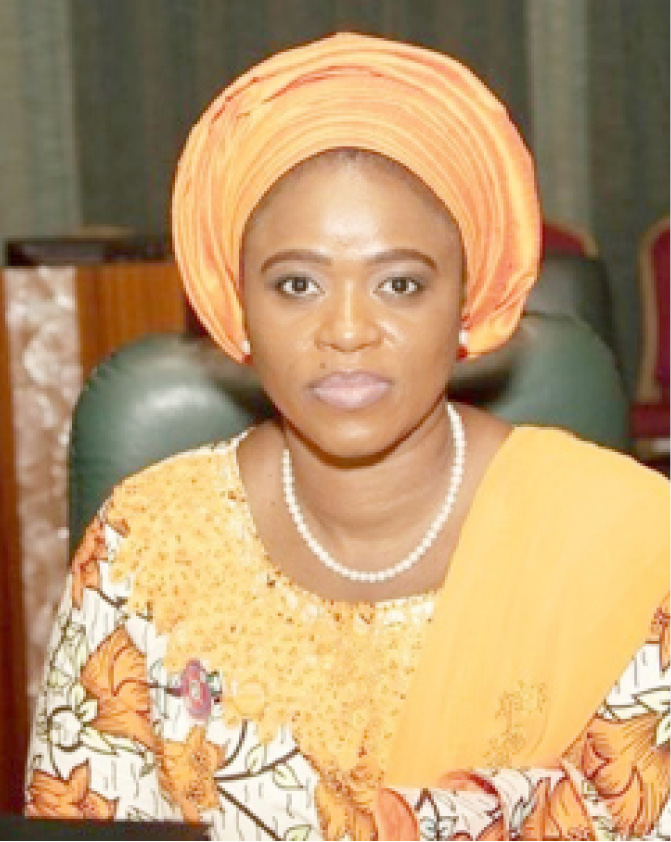Stella Okotete is the Executive Director, Business Development, of the Nigerian Export Import Bank (NEXIM). In this interview she says despite the disbursement of over N59 billion by the bank Nigerians are yet to fully take advantage of its various opportunities in growing non-oil export and that the current NEXIM team has changed the export pace and added value it.
How can rural farmers and Small and Medium Scale Enterprises (SMEs) benefit from NEXIM?
Among our plans is to develop export commodities in every state in Nigeria, including the Federal Capital Territory (FCT). So rural farmers and SMEs will definitely benefit from the export development facility because it is structured around having cluster groups that will aggregate from the farmers directly; meaning that the farmers will be able to have flexibility of pricing and the SMEs will definitely have cluster structures to carry out their export so that we can have more volume of exportable commodities leaving Nigeria from the State Export Development Facility.
We have customers who are driving that in the cocoa and sesame sectors. For cocoa, we have some big exporters already enjoying our facilities and they are interacting with the rural farmers. We also have for shea butter, we are currently exporting shea butter and the first shea butter processing plant was funded by NEXIM. We are currently funding additional two in Niger State.
Do you think farmers are well informed about these opportunities?
We carry out sensitisation programmes and projects across states. We have also had stakeholder engagements. There are over 200 million Nigerians, there is no way we can go and talk to all of them. So what we do is to talk to them through their associations and their cooperatives. The media can help sell the information that farmers should join the various associations and cooperatives so that they can benefit from government interventions and projects, and even private sector-driven projects.
So I will advise that for you to be heard and seen in that value chain you must be a member of any of the cooperative associations. Everywhere in the world that is how it is done.
We have a whole lot of subsistence farmers and they need to grow from that space to see agriculture as a business and that is why you are hearing so much about agribusiness. There have to be a shift and when that shift is done then they can be able to benefit from our projects but for you being a subsistence farmer right now, you will be in the agribusiness.
What measures have you introduced in line with the world’s best practices?
A lot of new measures, the ease of doing business is one of them and our turnaround time is seven working days maximum. Basically, it is 24 hours. We try as much as possible to key into this but the maximum time is seven working days because we need to do some internal review.
The COVID-19 lockdown affected several sectors, is any of the bank’s programmes affected in any way?
Many of our exporters were affected, so CBN advised that we reduced the interest rate. We ran a nine per cent interest rate but reduced it to five per cent. We also granted an extension to honorariums to businesses that require a lot of time to be able to do their clean up and carry out their export after the lockdown was lifted. Our businesses were affected but we were able to create a cushion to help get them back on track. I had a meeting with some of our customers and they have started exporting cashew nuts to Europe, China, and all of that. So yes we are getting there. For those that needed more money, we have reviewed their applications to give them more money. You know the lockdown came with a lot of issues, the exchange rate also changed.
How would you describe the activities of the bank under the present management?
I won’t want to score myself or the team, but with the reports we are getting from our customers, I am sure we are doing well and we intend to improve and do better than what we are doing. We have disbursed over N59bn of which 99.8 per cent is performing, and I think that is enough to show that we have created quality for the bank and for Nigeria and we have also grown the export basket of the country; the non-oil export basket. You can now see that we have more value-added products leaving the country than raw products like we used to do. In three years we have changed the export pace and we have added more value and volume to accommodate export.
There were reports that the bank granted loan to a political party during a gubernatorial election; is the bank involved in politics?
I read one of such stories; it is just fake news and it will be out of place for me to comment on it because there is nothing like that.
How has the bank been able to steer off politics from its engagements with state governors?
We are out to serve Nigeria; so business is business. We stay completely off politics and the state export development fund is open to all the 36 states and the FCT, so we are not looking at political parties. We are very conscious of extending our funds to Politically Exposed Persons (PEPs). We do our due diligence, requirements and reviews to ensure that funds are going out for businesses and not being diverted by PEPs. Good as it is, over the past three and half years we hardly had any PEPs coming for loan. We are not playing politics with the bank.
Which states have accessed the fund?
The state export development fund is open to all state governments. We are already working with Ebonyi and almost all the South West states. Almost all the state governors are aware of the state export development fund and some have activated and some are still in the process of activating. I expect them to grow export commodities identified in their states. Some of them are solid minerals related and we expect them to come up with policies that will help develop and grow this sector in their states.
We understand Taraba State sought partnership with the bank to boost tea production for local and international demands, how is it working out?
We are working with them to see how we can grow the brand and grow it for export, but we are not funding the government. We intend to work with the Highland Tea team to diversify the current structure that they are operating with and give them the needed fund for branding and packaging for export. Our core mandate as a development bank is job creation, FX generation. Kenya is just exporting tea and they are making money. Taraba can also grow coffee. Taraba is currently growing tea so we are looking at it to see where NEXIM will come in to get it for export and grow the value chain in the country. It is our job to be involved in economic activities in each of these states while growing export.
What is the bank’s contribution to boosting export across the states?
We earmark a minimum of N1bn for each state and some states are already doing above N7bn to develop their export sector. For Niger, we are already building two export processing plants for shea butter. Each of these plants cost about N2bn. In Cross River, we are talking to them about the cocoa plants they just commissioned. We are giving them working capital to do that. Cocoa can be processed from Cross River to the world. They are not donations we are not a grant agency. What we are doing is helping the export sector in the states through our funds and services.
Do you think the bank is doing enough in contributing to the nation’s economy?
We are doing a lot and we have a whole lot to do. Before now we all know that Nigeria was solely dependent on oil, but this administration has been so much passionate about diversifying the economy, and export is the way to go and we are in the position, with the help of our shareholders, the CBN and the Ministry of Finance, to fund the entire value chain of export. So we are working with Manufacturing, Agricultural, Solid Minerals and Services. We call it the MASS sector. We already have a lot of export items going out under each of these sectors and we intend to grow it beyond what it is. So we are calling on more Nigerians to get involved in the export business. It is not a government job; we need the private sector to play actively in the export value chain.
The volume of goods and services exported is quite low compared to the volume of imported goods. NEXIM was established to ensure the provision of export credit guarantee and export credit insurance facilities, how would you rate the performances of the bank in this regard?
It is a business, so if you want to, you need to meet up with all the requirements here and overseas because your destination countries have their own requirements. Issues with branding and packaging are the conditions that we require exporters to meet. Export is not a game; it requires serious and educated entrepreneurs. So you have to know the trade for you to play it.
How efficient is your loan procedure?
You don’t need to know anyone to actually get our facility. What you just need to do is to send in your application, meet all the requirements and in 24 hours somebody from the team will contact you and avail you of all the necessary information and support you need.
How are Nigerian products doing overseas?
We are doing well, but there is room for improvement. We are funding the entire value chain. We have goods that are competitive and can be on shelves abroad. I can tell you that we have a whole lot of new products right now leaving Nigeria and are on shelves all over the world. We have sesame oil and cashew nuts and they are currently competing with other brands because of the quality of what we have, and the organic nature of the products is giving them an edge over others.
Has there ever been an instance of your staff cutting corners?
We have in place clear cut rules of engagement. We don’t take kickbacks. We have mechanisms to check, and so far we have not had any complaint.

 Join Daily Trust WhatsApp Community For Quick Access To News and Happenings Around You.
Join Daily Trust WhatsApp Community For Quick Access To News and Happenings Around You.


